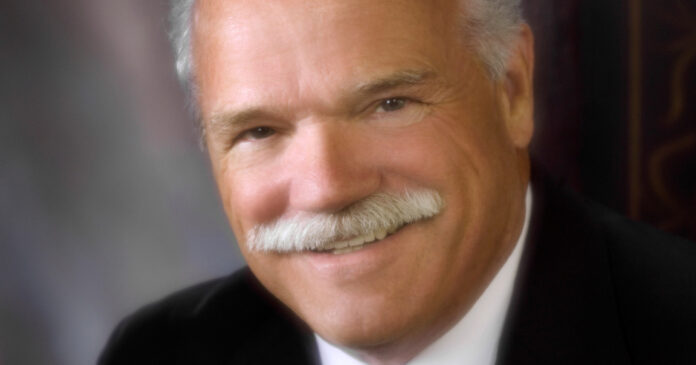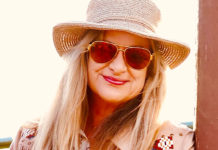The other day Lorraine and I were talking with a family friend about my column. The friend said she particularly liked the articles about the military, not because she served but because she had loved ones that had served in that little skirmish 10,000 miles from home.
There are a lot of stories that I could write about, but I think if I just told of one encounter that occurred, you might get an idea of how the war was fought. My stories are not about heroes or slackers but of the finest group of men I have ever known. I owe my life to a couple of them. These guys made up what was named by the Army as an “A” team.
An “A” Team consisted of 12 men trained in all the combat arms plus a radio operator and a medic. Yes, I know that a medic is not a combat arms, but he was trained in weapons just like every member was. These were the finest men who ever wore a uniform of our country. They were chosen to teach the indigenous citizens of whatever country they happen to be assisting. In my case we were securing a patch of land to build a defense against any enemy that might want to harm the citizens that were fighting along side of us.
My camp was named Trang Phuc. Trang Phuc is a small village along side of a river that was a natural bulwark against the enemy. This village was inhabited by Montagnard people. The Montagnard people were smaller than the Vietnamese and were usually relegated to live in the Mountains of Vietnam. That’s where my team was assigned to teach them of sanitation, small arms and maneuvers in combat.
If you look at a map of Vietnam, you might be surprised to know that there were very tall mountains in certain parts of the country. It seemed that the newspapers only thought of Vietnam as a jungle, which it was in many parts, but the mountains had to be guarded to preclude a buildup of the enemy that might overrun a village.
The Vietnamese didn’t get along with the Montagnard people. Oh they didn’t shoot each other very often, but they didn’t get along either. The Montagnard lived in the Highlands of Vietnam as they were considered to be a lower caste and shunned by the Vietnamese. The closest I can compare them to is the deep south of our country and how we treated the population of those states after the Civil War. However, for the Americans living and working beside them, they were fine soldiers. Of course they had to be trained, and that’s where Special Forces were assigned. Not so much to actually do the fighting themselves but to teach others of the skills that are needed.
I have a photo in the hall of my Special Forces “A” Team. This photo from Vietnam is a reminder of the truly professional soldiers that made up my team. I was blessed to be able to lead this team of experts for six months. As you might expect, these men hold a special place in my heart. This is a small unit that has been cross trained to work together where there isn’t a large contingent of regular Army unit.
Really there were two units in an “A” Team. That is so they could continue the operations if one were incapacitated, for whatever reason. I would like to tell of one time that I can remember as if it were yesterday. You may not feel the same, but it is a glimpse of how this works.
We had just received a new man on the A site. He was a very young man, but a communications expert and fit in the team in a great way. His name was and I hope still is, Dewy. He was the junior heavy weapons expert. Most all operations had to have two Americans, 30 or so Montagnards and a token Vietnamese Special Forces NCO. Vietnamese officers almost never went to the patrol even though we were fighting this war for them. But that is surely a story for another time.
The Americans on the A site had to take turns on operations where contact with the enemy was anticipated. As luck would have it, it was my turn to go on patrol and I was up the same day this young man arrived at our site. I wasn’t worried because the Montagnard soldier had one premier duty to perform. He was to throw his body on top of mine in case I was wounded. I had to be kept alive because I was the only one that could call in air support. We had no artillery cover like every other American unit in Vietnam.
We could call up a light plane that patrols the area and the pilot would divert a jet or two from their assigned mission to lend us support with bombs and rockets. Normally these jet planes were sent to North Vietnam where the aircraft faced an uncertain future as North Vietnam airspace was almost impregnable. The planes supporting us on our mission were never shot down. The little Piper Cub would relay directions to the jets and we would sit back and enjoy the deadly air show. They loved to receive our thanks if they got us out of trouble.
Most any soldier who served and had help from an Air Force Jet was thankful beyond explaining. We would pop smoke when we were told he was ready to make a run, he would either identify the color of the smoke or use a landmark to identify our position. The small plane was with us on a radio and would tell the jet to strike relative to the smoke we had thrown. It was the nearest we ever got to an air show.
Those jets would come diving at the enemy position and let go of their bombs and we would say a little prayer for the jet plane pilot. They would usually make two runs and figured if we were still in trouble they would divert another jet. It was like an air-show but deadly.
Next week we will finish up on this day in the life of a soldier. Be sure to tune in.
God Bless.














